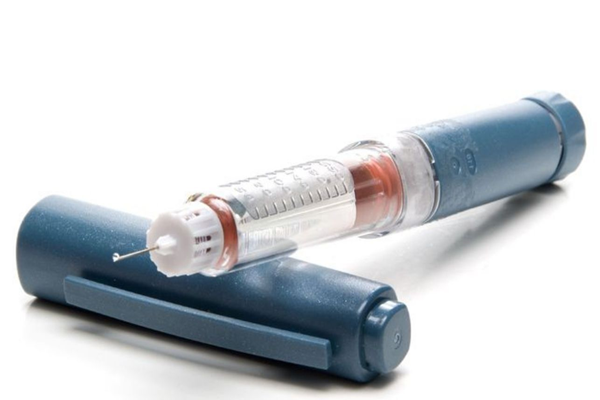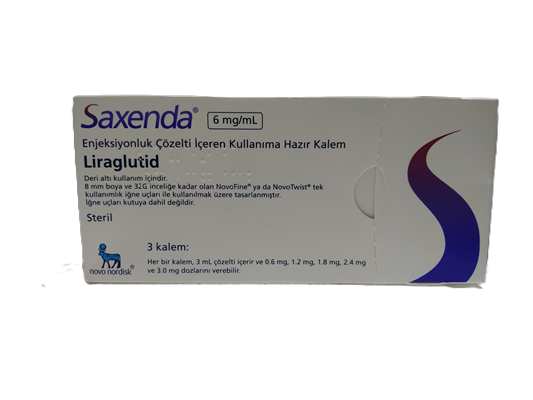Liraglutide: Indications, Mechanism of Action, Precautions and Side Effects
Indications
Liraglutide, a long-acting cardioprotective glucagon-like peptide (GLP)-1 analogue, was approved in 2017 for the treatment of type 2 diabetes, contributing to medical weight loss and glycaemic control in patients. It is indicated for paediatric patients aged 10 years or older with a diagnosis of type 2 diabetes. It was further approved for weight management in 2020 for patients aged 12 years and older with a diagnosis of obesity who have an adult body mass index (BMI) of 30 kg/m2 or more, or who weigh more than 60 kg.
It can also be used to help adults with type 2 diabetes and heart disease reduce the risk of serious heart problems such as heart attack or stroke. However, it cannot be used to treat type 1 diabetes.
In addition, Liraglutide is used to treat other reasons for obesity. A 40-week study found that obese or overweight patients with stable bipolar disorder who were treated with liraglutide lost significantly more weight than those treated with placebo. And liraglutide caused few adverse effects and did not exacerbate psychopathology.

Mechanism of Action
The mechanism of Liraglutide for type 2 diabetes is to help the body produce more insulin when needed. It is an agonist of the glucagon-like peptide-1 receptor coupled to adenylate cyclase. An increase in cyclic adenosine monophosphate stimulates glucose-dependent release of insulin, inhibits glucose-dependent release of glucagon, and slows gastric emptying, thus enhancing blood sugar control. It also helps to reduce the amount of glucose produced by the body and slows the digestion of food. This all contributes to blood sugar levels and HbA1c.
Precautions
Liraglutide needs to be used with caution in patients with the following conditions, always consult your doctor's advice before making a decision.
(1) Development of diabetic ketoacidosis or DKA
(2) Renal disease (depending on the severity of the disease)
(3) Severe liver disease
(4) People who are about to receive surgery
(5) Pregnant or lactating women
Side Effects
Liraglutide is generally well tolerated with mild side effects. Common side effects include: low blood sugar, nausea, vomiting, upset stomach, loss of appetite, diarrhoea, constipation, rash, headache, dizziness or feeling tired. Severe can lead to rapid heartbeat, sudden changes in mood or behaviour, suicidal tendencies; symptoms of dehydration (thirst or heat, inability to urinate, profuse sweating, or hot, dry skin), symptoms of severe hypoglycaemia (dizziness, rapid heart rate, feeling anxious or trembling), problems with the gallbladder or pancreas, and signs of a thyroid tumour (swelling or lumps in the neck, difficulty in swallowing, hoarseness, shortness of breath). There have been reports of overdose leading to acute pancreatitis, but the issue is controversial and not yet supported by sufficient evidence.
References:
[1] ALJAWHARA R. ALSAADOUN A K A G Tariq R AlSaadoun. Liraglutide Overdose-Induced Acute Pancreatitis[J]. Cureus, 2022. DOI:10.7759/cureus.21616.[2] Liraglutide results in significant weight loss in patients with bipolar disorder[J]. The Brown University Psychopharmacology Update, 2024, 35 7: 1-10. DOI:10.1002/pu.31179.
[3] CHRIS WALTON. Early impact of liraglutide in routine clinical use (ABCD nationwide liraglutide audit) on cardiovascular risk (UKPDS risk engine)[J]. British Journal of Diabetes, 2020. DOI:10.15277/bjd.2020.243.
You may like
Related articles And Qustion
See also
Lastest Price from Liraglutide manufacturers

US $5.00-0.50/Gram2025-11-21
- CAS:
- 204656-20-2
- Min. Order:
- 1Gram
- Purity:
- 99% hplc
- Supply Ability:
- 500TONS

US $1.00/KG2025-10-14
- CAS:
- 204656-20-2
- Min. Order:
- 25KG
- Purity:
- 99%
- Supply Ability:
- 20T




